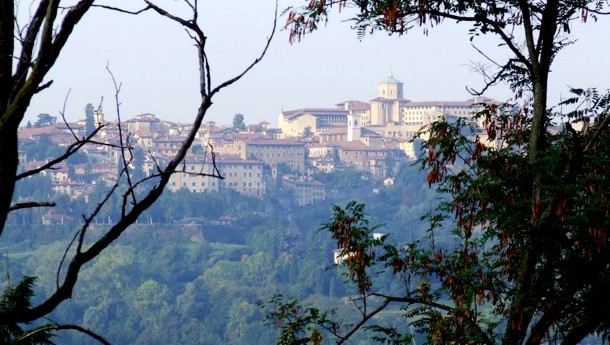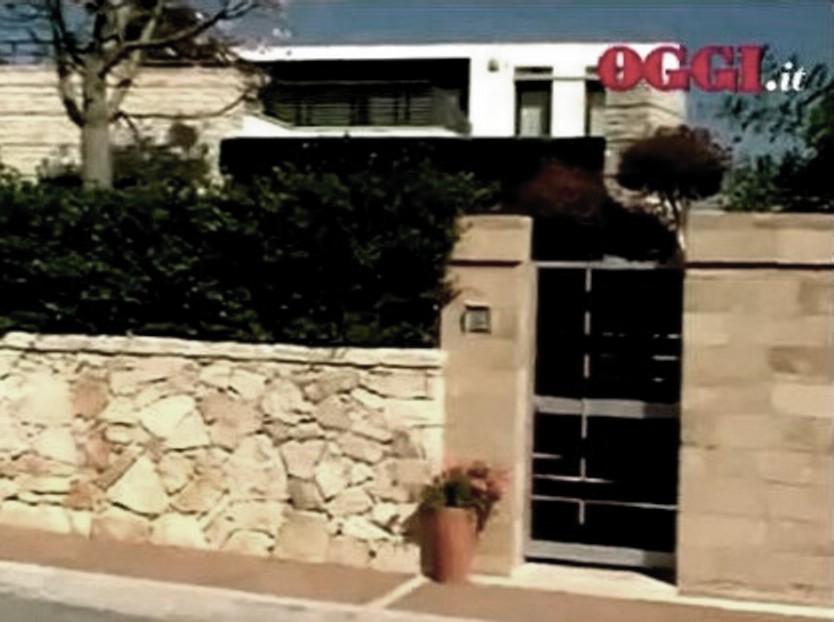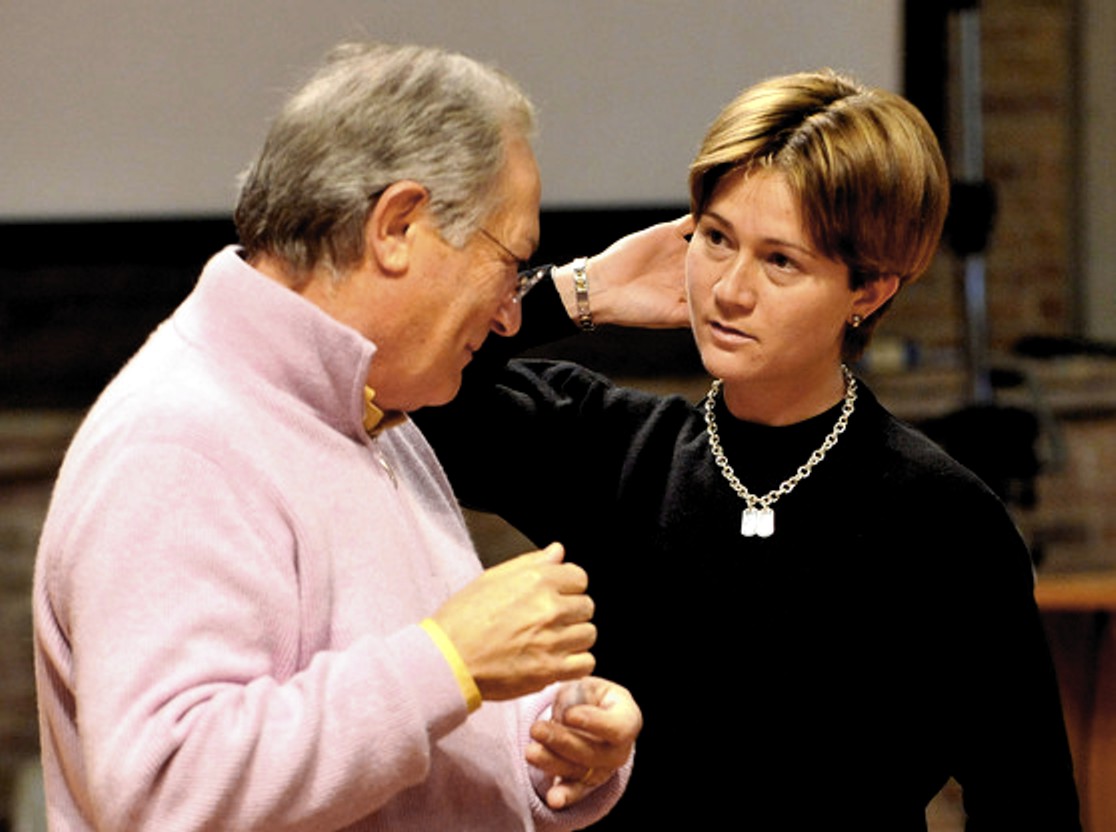
Category: The legal followups
Friday, June 14, 2013
Questions For Knox: Did You Actually Undergo An Illegal Interrogation?
Posted by Our Main Posters
Yet Another Damning Question For Knox
Why exactly did you frame your kindly employer Patrick for the crime?
Even the hapless Judge Hellmann, who seemed to try so hard (at his own cost - he is now forcibly retired) to have things break your way, didn’t believe anyone ever forced or tricked you into framing Patrick for the crime.
Accordingly you served three years in Capanne Prison, and in March the Supreme Court threw out your final appeal over that. You now have a felony record for life, as well as a proven tendency to lie which every Italian knows about.
And yet you head off down the exact-same slippery slope again in so many places in your obnoxiously self-aggrandizing book. Periodically, you make easily-nailed felonious claims, as here.
Quote From The Knox Book 2013
Here on pages 90-92 you describe word for word the questioning by Prosecutor Mignini at your first (witness) interview on the night of 5-6 Nov.
[This is the voluntary witness interview.] Eventually they told me the pubblico ministero would be coming in.
I didn’t know this translated as prosecutor, or that this was the magistrate that Rita Ficarra had been referring to a few days earlier when she said they’d have to wait to see what he said, to see if I could go to Germany.
I thought the “public minister” was the mayor or someone in a similarly high “public” position in the town and that somehow he would help me.
They said, “You need to talk to the pubblico ministero about what you remember.”
I told them, “I don’t feel like this is remembering. I’m really confused right now.” I even told them, “I don’t remember this. I can imagine this happening, and I’m not sure if it’s a memory or if I’m making this up, but this is what’s coming to mind and I don’t know. I just don’t know.”
They said, “Your memories will come back. It’s the truth. Just wait and your memories will come back.”
The pubblico ministero came in.
Before he started questioning me, I said, “Look, I’m really confused, and I don’t know what I’m remembering, and it doesn’t seem right.”
One of the other police officers said, “We’ll work through it.”
Despite the emotional sieve I’d just been squeezed through, it occurred to me that I was a witness and this was official testimony, that maybe I should have a lawyer. “Do I need a lawyer?” I asked.
He said, “No, no, that will only make it worse. It will make it seem like you don’t want to help us.”
It was a much more solemn, official affair than my earlier questioning had been, though the pubblico ministero was asking me the same questions as before: “What happened? What did you see?”
I said, “I didn’t see anything.”
“What do you mean you didn’t see anything? When did you meet him?”
“I don’t know,” I said.
“Where did you meet him?”
“I think by the basketball court.” I had imagined the basketball court in Piazza Grimana, just across the street from the University for Foreigners.
“I have an image of the basketball court in Piazza Grimana near my house.”
“What was he wearing?”
“I don’t know.”
“Was he wearing a jacket?”
“I think so.”
“What color was it?”
“I think it was brown.”
“What did he do?”
“I don’t know.”
“What do you mean you don’t know?”
“I’m confused!”
“Are you scared of him?”
“I guess.”I felt as if I were almost in a trance. The pubblico ministero led me through the scenario, and I meekly agreed to his suggestions.
“This is what happened, right? You met him?”
“I guess so.”
“Where did you meet?”
“I don’t know. I guess at the basketball court.”
“You went to the house?”
“I guess so.”
“Was Meredith in the house?”
“I don’t remember.”
“Did Patrick go in there?”
“I don’t know, I guess so.”
“Where were you?”
“I don’t know. I guess in the kitchen.”
“Did you hear Meredith screaming?”
“I don’t know.”
“How could you not hear Meredith screaming?”
“I don’t know. Maybe I covered my ears. I don’t know, I don’t know if I’m just imagining this. I’m trying to remember, and you’re telling me I need to remember, but I don’t know. This doesn’t feel right.”
He said, “No, remember. Remember what happened.”
“I don’t know.”At that moment, with the pubblico ministero raining questions down on me, I covered my ears so I could drown him out.
He said, “Did you hear her scream?”
I said, “I think so.”My account was written up in Italian and he said, “This is what we wrote down. Sign it.”
Nailing Yet Another Knox Lie
So you choose to portray yourself as reluctant to talk at all? While Dr Mignini relentlessly edges you more and more into saddling Patrick with the blame? While you have no lawyer there?
In fact as you well know every word of that dialogue is made up. You invented all of it. Dr Mignini was not even there. Right then, he was asleep in bed.
Now we contrast this malicious figment of your imagination with the account of that night by many others who were present at various times. Even you yourself essentially agreed to this narrative at trial, with the one exception of an invented clip on the head.
1. You insist on being around in the central police station despite being grumpy and tired while Sollecito helps investigators to check a few claims.
2. After a while an investigator, Rita Ficarra, politely invites you to help build a list of names of men who might have known Meredith or the house. She is somewhat reluctantly as it was late and no interpreter was on hand. You quite eagerly begin. An interpreter is called from home. You calmly produce seven names and draw maps.
3. Sollecito breaks sudenly and unexpectedly early in his own recap/summary session when confronted with phone records which showed he had lied. He quickly points the finger at you as the one having made him lie. You are not told this but the investigators all know.
4. You share your phone, and break explosively when an outgoing text shows up on your phone after you had claimed you sent none. You yell out words to the effect that Patrick is the one, he killed Meredith. Police did not even know of the existence of Patrick before you identified the text as to him.
5. Thereafter you talk your head off, explaining how you had overheard Patrick attack Meredith at your house. The three ladies present and one man do what they can to calm you down. But you insist on a written statement, implicating him, and stating you went out from Sollecito’s alone.
6. This from about 2:00 am is the state of play. You are taken to the bar for refreshments and helped to sleep. You testify at trial that you were given refreshments, and everybody treated you well.
7. As you had admitted being at the scene of a crime you had not reported, you had in effect admitted to a crime, so a legal Miranda-type caution is required saying the signee understands they should not talk without a lawyer, and if they do talk that can be used as evidence in court.
8. Dr Mignini, the on-call duty prosecutor for that night, is by multiple accounts including your own at trial, not present at that list-building session with Rita Ficarra, and in fact knows nothing about it until Rita Ficarra closes it down. He comes from home.
9. Dr Mignini reads you your rights. You now sign acknowledging you know you should not talk unless your lawyer is there. Dr Mignini asks you no questions. He is anxious to get the session over so he can get on to the task of pulling Patrick in. You yourself insist on a new written statement and shrug off a lawyer. Though you are again warned, you push on.
10. Under Italian law that second statement could and should have been used against you, but the Supreme Court denied its use except against the false charges made about Patrick. Dr Mignini has said he think that was wrong in law but did not appeal.
Really a very simple chain of events, which was attested to at trial by all of those who had been present on the night, even including yourself.
There are no signs at all in anyone else’s description that you were leaned on by anybody, and nobody at the central police station had the slightest vested interest in making you into a target that night.
So where precisely does this new claim in your book of an illegal interrogation by Dr Mignini fit in? Now would be a good time to admit that you made it all up.
Sunday, May 12, 2013
With Diffamazione Complaint Against False Claims In Oggi Knox’s Legal Prospects Continue To Slide
Posted by Our Main Posters
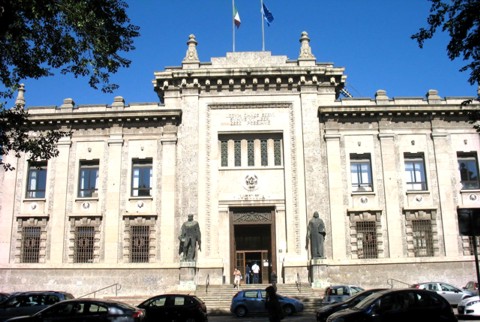
[Above: the Palace of Justice in Bergamo where Knox and Sollecito might spend some time]
Knox’s public relations campaign is starting to look very, very odd.
As many of our recent posts have explained, no really good lawyer in Italy would ever allow their clients to put out an inflammatory book while their legal process is still going on. It hasn’t happened in any other Italian cases in years.
And now in this case it has happened twice.
Sollecito’s book reeked of blood money, arrogance and contempt, it twisted and discounted much of the evidence, made claims which both Sollecito and others had previously contradicted, made accusations of criminal behavior against officers of the court, and separated himself from Knox.
Now guess what?
Despite the fact that Sollecito’s book was promptly dispatched to the Florence and Verona chief prosecutors with diffamazione and vilipendio complaints, Knox’s book too reeked of blood money, arrogance and contempt, it too twisted and discounted much of the evidence, it too made claims which both Knox and others had previously contradicted, it too made accusations of criminal behavior against officers of the court, and it separated her from her co-perp.
In each case there was a shadow writer, respectively Andrew Gumbel and Linda Kulman, who seem to have tired early on of the clients, as all their hired help tends to do, and simply copied the FOA playbook into the books with no sources at all checked beyond that narrow group.
To cool-headed and informed people who really know the case, Gumbel’s sources were rather a joke. PR shills Nina Burleigh and Candace Dempsey and Steve Moore? Really? And Linda Kulman seems to have fallen into the same trap.
This becomes very obvious when you watch the two “authors” at their interviews. They are both hampered and tongue-tied because for the life of them neither can remember what their shadow writers put in the books. Several interviewers have actually caught them out.
As we knew the Bergamo lawsuit against Oggi and Knox was headed down the pike, we set out what we consider to be the state of play last Friday. It still stands up, but might be embellished just a bit.
First, here is Andrea Vogt’s helpful description of what’s in the Bergamo complaint..
The 8-page complaint is addressed to the Prosecutor’s Office in Bergamo (near Milan), where the headquarters of the magazine are located. It cites as slanderous the suggestion that Knox was illegally interrogated and maintains that there is no trial or investigation documentation supporting a number of “affirmations that were never made.” Mignini insists Knox was initially heard by him as a witness with key information relevant to the murder of Meredith Kercher, not as a suspect herself.
“Knox never asked for an attorney. She wanted to talk,” Mignini wrote, adding that he did not contest her statements or question her at that time, because she was making a spontaneous declaration regarding Patrick Lumumba’s alleged involvement. [In other words, not about herself.]
The complaint also questions allegations of prison mistreatment and indicates specific persons and neutral institutions as having knowledge on the matter, including the Capanne prison chaplain, U.S. embassy officials, center-right politician Rocco Girlanda and secretary general of the Italy-USA Foundation Corrado Daclon, all of whom visited Knox regularly in prison.
Also contested are phrases reported by Oggi and attributed to Knox’s memoir claiming he had a bizarre past that included a conviction on abuse of office charges that was pending appeal, when in fact he was fully and definitively acquitted of those charges in 2011 by a Florence court.
Italy’s high court (Cassation) recently agreed with his office’s request to re-open the Monster of Florence/Narducci case, the complaint notes. That decision has lent new credence to his long-running investigation of the suspicious 1985 death of a Perugian doctor who some investigators believe was involved (Italy’s Cassation Court in March also ordered Mario Spezi, co-author of the Monster of Florence bestseller, to stand trial for allegedly attempting to pin the blame on another man).
While the targets of the suit are stated to be Oggi and Amanda Knox and her publishers, the REAL target appears set to be the FOA playbook as set out in Amanda Knox’s book. And for that matter in Raffaele Sollecito’s book.
The first complainant (there are expected to be others) Giuliano Mignini has advanced a request for a formidable slate of witnesses, which could come to include even the lawyers for Sollecito and Knox.
Won’t that be fun. As they are interrogated on the stand, each witness is going to have to take a position on what crazy stuff the FOA have pushed into the books.
Did the prosecutor offer Sollecito an illegal deal or not? Did Knox get interrogated about Patrick by the prosecutor while denying her a lawyer or not? Did Knox complain to her lawyers about conditions in prison and if so why do those lawyers and so many others say she did not?
And maybe fifty more sudden-death choices like the above. Gee thanks Oggi and Amanda Knox. This could set some facts straight, in front of the whole world.
Monday, January 21, 2013
An Overview From Italy #2: Current Perceptions In Italy, Justice Perverters Fail, Mignini Vindicated
Posted by Machiavelli
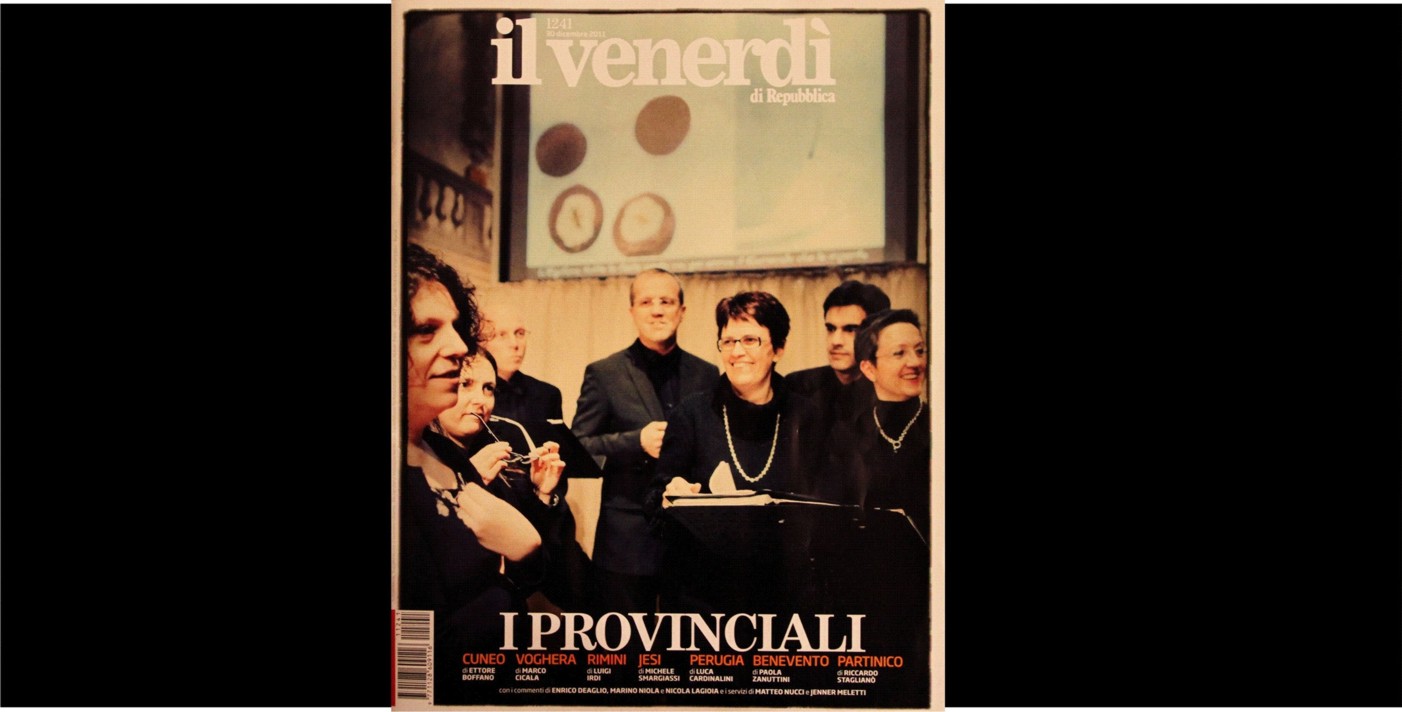
My previous report on the bad news remorselessly building here for the defense was on the Procura Generale appeal to the Supreme Court.
One year ago ““ between the end of December 2011 and beginning of January 2012 ““ there were only rare idle comments in the Italian press about the Meredith Kercher case, more or less sarcastically noting the “suspicious” circumstances of the Appeal trial. I recall how a mention of the topic was dropped into the last number of “ll Venerdì” of 2011.
“Il Venerdì di Repubblica” is the weekly magazine issued together with the newspaper “La Repubblica” (thus probably the most read magazine in Italy).
The cover theme of that week was provincialism ““ or better “the provincials” - the adjective used to assemble a sample of seven little cities (Cuneo, Voghera, Rimini, Jesi, Perugia, Benevento, Partinico), picked from different regions, and taken as examples on the theme, that is stories of “local colour”; what goes on in small “provincial places”. A few characters and stories are brought in to depict the local life of each place, and the voices of local authors adds something about the places.
The article about Perugia (at pages 62-68) was by Luca Cardinalini. In that number of Il Venerdì, having stories of “local colour” as weekly theme, there were shades of ironic tones for each city, often through the voice of local intellectuals. As Perugia is described, the Meredith trial is quickly recalled among its local stories; the reader can’t miss how this is viewed as in connection with another most remarkable feature of the city, that is Masonry.
According to Luca Cardinalini and Enrico Vaime, Masonry is called a “Specialty” of Perugia, like chocolate. Local author Enrico Vaime intends to convey the people’s perception about shady powers existing in the city, about a local environment saturated by plots and informal powers, as something behind recent strange judicial decisions such as the Hellmann verdict and the apparent dropping of the Narducci case. The widespread belief of Perugians that the Public Minister (prosecutor) is the righteous one shines through the words of Enrico Vaime.
Also notice how racism appears to be another key perception about the verdict. Quality media press in Italy has a typical style of understatement. This comment hints that it seems obvious that the Appeal was a racist verdict - and it was “expected” that they would find a way to blame the black one and the outcast.
Some of Perugian “provincialism” seems to include a very narrow localism of Perugian identity: a person from Orvieto is reported to be called “a foreigner” ; but this is because the cultural viewpoint is based on the assumption of a personal knowledge of all people. In among this, there is Vaime’s knowledge about how rooted Masonic tradition and power is in the city, in a scenario of “brotherhoods” and “tribes” (the article includes a photo of the most known “Masonic” monument in Perugia: the gryphon or griffen ““ the emblem of Perugia ““ grabbing a toppled Pope’s Tiara in a sign of rebellion).
The report by Vaime is objectively correct : the concentration of members of Masonic lodges in Perugia is the highest in the world, about 5 times the national average of Italy (which is anyway very high).
In Vaime’s wording decent people in Perugia are ‘Christians’ or ‘Communists’ ““ these are the names he uses to address the main categories he sees as “good” people, two transparent moral systems. He devolves skepticism toward the less transparent allegiances, the murky and informal connections to powers.
I believe these perceptions from one year ago, in this colorful article about Perugia, should be most interesting to the readers of this site.
The first part of the article on Perugia is not that interesting - it speaks mostly about a local character named Ivano Massetti, nicknamed “Savonarola of Umbrian football”, the director (“boss”) of a local TV network and leading showman of his own soccer talk show. I skipped this first part with depictions of local folks, and get to the point at p.66 where the Kercher case is first mentioned.
This is my translation of the article from this point:
[”¦](p.66 line 17):
As Enrico Vaime ““ a 100% Perugian, a writer, and among many other things fiercly provincial ““ already knows: “Only in Perugia do you hear people saying “actually Tizio [random guy] was not a native from Colombella, but from Piccione”, which is three times further”. And when his grandfathers (farther of his father) bearing the same name Enrico Vaime, moved his formal place of residence [to Perugia] from Spello, on the official documents they wrote “emigrated to Perugia and married to a foreigner from Orvieto”.
The roots are extremely deep. “Still today” Vaime says “when I say to my family “we go back home”, I mean here, in Perugia, where I have not owned a house for decades. And I still call the roads and shops with the names they had when I was a child, even if now the owners are foreigners, from Shangai or, as I say, from Terni”.
Vaime is cross with the bad reporters who described Perugia, in the Meredith murder case, as a capital of corruption and vice: “An invasion of charlatan journalists who, as they believed they were visiting a remote and lost province, they painted it as a sort of Chicago on the Trasimeno Lake”.
[The fact] that no Perugian was involved in that sad story, to them that was an irrelevant detail. And the trial ended just the way many Perugians expected: a black guy first wrongly put in jail, another black one convicted, the two white, good-looking, wealthy and well defended young people, free.
So it was that the Public Minister Giuliano Mignini became a target. He’s a Perugian whom the Perugians know as the dominus of the other judicial case ““ this also is, yes, entirely local ““ about which everybody talks and knows, but always in a low voice: the death of doctor Francesco Narducci, the one suspected of having ties to the crimes of the Monster of Florence. From the judicial point of view that was - by half ““ just another hole-in-the-water [a failure] for which some critics have hastily put the blame on some alleged lunacy of the public minister.
But”¦ however”¦ meanwhile, this [Naducci] corpse-swap was indeed found to have been for sure, a kind of unique case in the criminal history of the country. And, for what concerns the recent acquittals of those characters involved in this death, well, after almost a year and a half we are still waiting for the verdict motivations. All of the suspects were esteemed high-class professionals. That’s a perfect mix of strange deaths, sex, lead-astray investigations, and Masonry; this is in the city with the highest number of Masonic lodges in Italy.
Vaime sighs: “Masonry is something alien from me, but I have many friends who are in it. In Perugia it works as a compensation chamber for various powers, but also as an effort for the surge of the spirit to many decent people. Masters, masons and “33”, but all of them decent Perugians”. Masonry is considered a local specialty, just like the bruschetta or the Etruscan arch.
“One day you find out that that mediocre employee of your acquaintance, or the one who performed an incredible career in the public administration or in politics, is a “˜son of Horus’. Then you either laugh, or you slap yourself on the forehead just like saying to yourself “Wow! [how could I ] think about it!”. “That travet* [*a generic mediocre opportunist employee], too”
Vaime says “to me it is a strange Perugian, with little interest for the Egyptian god compared to his covet for entering inner circles of a certain world. Their internal motivation is “I want to see how the lords sit at the table”. But in there [Masonry], you see, there are also good Christians and good Communists; as has always happened in this province, which has the art of living together in its genes”.
[”¦. ]
This month ““ Jan 2013 ““ the Italian press returned to the topic of the case again in a few brief articles. This time it was because of Sollecito’s book.
After Maurizio Molinari’s report from New York on the book in September, and the busting by Bruno Vespa on Porta a Porta of Francesco Sollecito, who ended up openly contradicting his own son’s statements, another hint appeared in the local press about what is cooking up backstage.
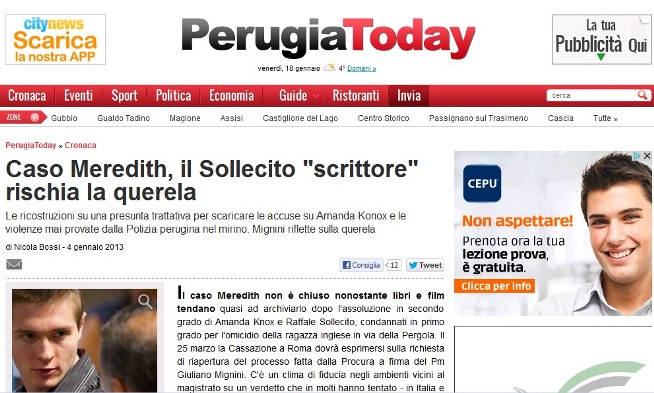
This article in Perugia Today has a neutral take, but the same understatement and kind of vagueness as it anticipates that something very likely will happen.
What I find most delightful is the quotation marks in the title around the word “author” ““ journalist Nicola Bossi doesn’t believe for a moment that Sollecito actually wrote the book:
Meredith Case: “author” Sollecito at risk of criminal lawsuit
The recounts about an alleged negotiation in order to pin the main charges on Amanda Knox, and unproven violence by the Perugia Police are under target. Mignini is considering criminal lawsuit.
Written by Nicola Bossi ““ Jan 4. 2013
The Meredith case is not closed, and this despite books and movies almost tend to drop it after the acquittal in second instance of Amanda Knox and Raffaele Sollecito - who were convicted in first degree for the murder of the English girl that took place in Via della Pergola.
On upcoming March the 25th the Court of Cassation of Rome will have to decide on the request for a re-opening the trial, submitted by the Procura with the authorization of Public Minister Giuliano Mignini.
In the environment of the magistrates there is confidence about a [guilty] verdict that many ““ in Italy and in the USA - have heavily attempted to discredit. But from the same environments around them, they talk about a greatly serene Mignini making assessments about the next strategic moves, following the attacks directed against him ““ and against those in Law Enforcement who cooperated with him ““ contained in the book by Raffaele Sollecito.
An upcoming criminal defamation lawsuit is becoming more and more likely every day, especially about some particular paragraphs. The material published by Sollecito has already resulted in discussions and clamor above all about claimed negotiations [with the prosecution] aiming to shift the blame onto Amanda alone, to be rewarded with his immediate release.
But there are also accusations against the Police about violence during his interrogations. “If you dare get up and walk, I beat you up in a bloody pulp and I kill you. I leave you in a pool of blood”. This is what you read in the book “˜Honour Bound’ issued in the US, as what Sollecito attributes to the Perugian officers.
“They wanted me to lie so they could frame Amanda”: this is the premise of the claimed negotiations claimed to indirectly involve Mignini too, which he always denied. Allegedly this would have been enough to get [Sollecito] out from prison soon, leaving the American woman in trouble.
So, these are grave accusations which Mignini apparently does not intend to let go unpunished. The criminal lawsuit is likely to be filed earlier than the date of Cassazione [25 March].
Another small piece of news is this article below published in Leonardo and written by Valentina Cervelli:
It seems basically a “commented” version of the Perugia Today article. Cervelli adds a few polite lines on her own thoughts in this piece, published on the Bbooks page of Leonardo,it; this is my translation:
Is Raffaele Sollecito going be sued soon for “Honor Bound”?
By Valentina Cervelli - 6. Jan 2013
Are there troubles in sight for Raffaele Sollecito? His “Honour Bound” book is going well in the United States in terms of sales, but here in Italy it might be soon result for him in a lawsuit for defamation by the Law Enforcement forces and by the Public Minister Giuliano Mignini.
As we know already, in Honor Bound ““ My journey to hell with Amanda Knox and return Raffaele Sollecito has reconstructed the whole judiciary story from his point of view, telling in his autobiography what [he says] is his own truth.
On March 25 Cassation in Rome will decide on the [prosecution] request for the re-opening of the trial submitted by the Procura authorized by Giuliano Mignini, after the acquittal in the second instance of the two main accused, Sollecito and Amanda Knox.
The young woman has returned back to her country and we bet it’s going to be difficult, if not impossible, to get her back in our country even in case of retrial after Cassation and a possible conviction. But lets leave aside this possible dispute and lets focus on the book. In Raffaele’s book Mignini is iimplicated because he reportedly comes out discredited. In the material published by Sollecito in his book he even talks about alleged negotiations in order to blame Knox alone, obtaining in reward a quick release.
And what about the allegations of Police violence during interrogations? Of course we don’t get into the merits, but it seems obvious that parties that may be considered offended would tend to launch a counter-attack to defend their dignity and their work. At the moment no lawsuit has been submitted. But with much probability that will be done before the decision of Cassazione.
By now we can only wait for the publishing of the book in our country, in order to assess with our minds what Raffaele Sollcito has written and the “hot” material published in his made-in-the-US autobiography.
By the way; one thing Valentina Cervelli might get wrong is the purported good sales of Sollecito-Gumbel’s book.
The Amazon.com site is reliable as quick indicator of a product’s success; the price of a new copy of “Honor Bond” on Amazon.com is now $ 3.51 (last week it was 3.76; the cover price is $ 24). It suggests sales are not quite as expected. The drop speed is significant if you consider that the book has been out for only four months.
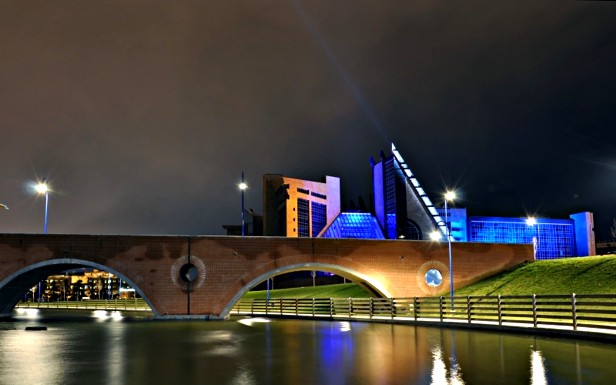
[Above: the Florence Palace of Justice]
While many honest magistrates seem to be working in Florence, there is still some strange behavior by one or two people in the Florence prosecution office.
Iin particular by the chief prosecutor there were some unexplainable decisions. As people reading this site know, Giuliano Mignini and Michele Giuttari were convicted (of some of the charges) in the first degree trial in Florence.
The motivations document was disconcerting because: besides the proof of their innocence on the main charge, what was described as the evidence on the remaining charge constituted extremely weak and vague arguments for what was claimed about Giuttari, while they were totally non-existent about Mignini.
In the second instance appeal as we know the court completely crushed the trial case.
The case against them collapsed not because of a technicality, as the FOAs falsely claimed. In the figment of their imagination the Knox supporters erroneously thought that the Florence court had an “option” to overturn the case, to find Mignini and Giuttari innocent, but that they instead decided to pass the judgment on to some other tribunal.
The pro-Knox believers are probably also ready to believe blindfolded that there was some kind of evidence against Mignini.
The Knox believers are wrong. What in fact happened in Florence is something almost unique in a judge’s career. The first remarkable event was the decision by the Florence court of nullifying the first degree verdict. They did not simply overturn the verdict (neither change, or “reform” it as we say) since an overturning would imply acceptance that a previous verdict actually existed and was legitimate.
The cancellation was in fact an in limine act about the validity , which does not require an assessment about it correctness. The court went way beyond. In fact they nullified the whole trial, not only the previous one in terms of judgment, but also the preliminary hearing, and the indictment; and even the request of indictment.
It is a legal outcome not comparable to a simple change or overturning because it is a ruling that the whole proceeding was illegitimate from the very roots. The investigation itself of Mignini and Giuttari was declared illegitimate.
If elements were found for the opening of an investigation, the prosecutor would be entitled to carry on their duties, though the investigators should be from another territory. This is important because the Florence court found evidence that people from the same office were involved in cases against Giuttari and Mignini, both as offended parties and as prosecutors.
Because of a basic conflict of interest, the local prosecutors were incompatible and the Procura of Florence had no jurisdiction. Not even Genoa would be compatible.
Florentine prosecutors therefore had no right to bring cases against Mignini and Giuttari. The investigation files now must now be sent to the competent jurisdiction ““ where they should have been sent from the beginning ““ which is Turin; there other legitimate prosecutors will decide if and how there is anything to investigate about, and if there are any charges to bring against anyone. The Florentine trials should have never taken place. The court ordered that the legitimate investigators are the Procura of Turin.
In addition, they also ruled that the court of Florence would be an incompetent jurisdiction in any further possible case that stems from that investigation: since the competent prosecution is Turin, in case elements for the indictment of anyone for any charge are found, in the future, everything should go to a court in Turin ““ this, only if there will be any charge to bring to court .
This decision in Florence was a total debacle for the Florence prosecutors. It is in fact “politically” much worse than an overturning of a verdict. It is not just a like a different conclusion on the merit, it is the decision to take away even the investigation from them, a kind of implicit censure of their work as highly illegitimate.
But at this point in the procedings, something even worse and even more strange happened. The Procura of Florence did something even more unusual, in fact unprecedented as far as I know.
Apparently the Florence prosecutors are not happy at all to pass the investigation file on to Turin. For some reason they seem instead to want to do unnecessary and irrelevant hard work instead. The Florentine prosecutors impugned the decision and revisited this at the Supreme Court against the Florentine judges.
This step is almost unheard of because the decision of the Florence appeal court is of a type that manifestly cannot be impugned at the Supreme Court. The recourse is obviously going to be declared inadmissible. If that submission was done by a private citizen, they would get a heavy fine for that.
Here it is a power in the Florence judiciary branch making this inadmissible move; for unknown reasons.
I’d like to know the real motive behind the latest Florence move, the only effect of which can be a waste of time (and money), a delay, of at least one or maybe two more years, which only makes the failure of the whole proceeding against Mignini and Giuttari more likely due to lapse on an expiration terms.
I say “I’d like to know” but in fact one motivation stands out as obvious: the whole proceeding against Giuttari and Mignini, from the first bringing of the charges at the lower courts, appeared as having a wasting of time among its purposes.
One practical effect - maybe a practical purpose - of pushing the charges against Mignini, was taking the file about the Monster of Florence case links with the Narducci case away from Perugia. By this move, the Florentine prosecutors managed to factually put their hands on the Narducci-MoF file and remove it from the investigating powers in Perugia.
Another effect of this was delay. Now this latest move looks as if its purpose were to delay, as much as possible, the transfer of the legal documents to Turin.
What is the ultimate event that, by all this, they seem to be seeking to delay? I can’t know for sure, I can only guess; in fact, I have only one answer, which also stands out as something obvious for those who know a bit of the backstage:
Giuliano Mignini is not an ordinary magistrate, he belongs to the Anti-Mafia Territorial Division of Umbria, and recently was selected for a further promotion by the Supreme Council of Magistrates.
In fact what is delayed is the advancing of Mignini’s career: in fact he has been already promoted to a directive function; but, by the rules, his taking the post was frozen while awaiting the outcome and conclusion of the Florentine prosecution.
Prosecutor Mignini is de facto already functioning as a prominent Magistrate in Perugia and considered as such; but formally he has not been given the directive power. Several people ““ among them Spezi and a number of his journalist friends, but possibly also other much more important people too ““ are likely not at all eager to see Mignini awarded further power.
About the latest endeavor by Raffaele Sollecito, who became liable for criminal defamation by writing false allegations about Mignini and others in his book, I expect - as logically unavoidable ““ that several powers and subjects will basically have no option but taking legal against him.
There will be a strategic necessity to doing this in order to prevent extradition issues in the future, but also, above all, on principle, because Sollecito made false claims about public institutions that needt to have their names cleared. Considering the kind of allegations against the judiciary as an institution, and considering that Mignini is a judge of the Anti-Mafia Division, this is the kind of lawsuit that I see as likely to be submitted on a national level, in Rome.
If that is the case, it would not be the only strange thing that the courts of Rome will deal with.
It seems like there is a kind of “curse” on proceedings related to the Narducci case. All sections of the Supreme Court which have been asked seem to have attempted to declare themselves “˜incompetent’ about re-opening the cases related to the Perugian doctor. The Cassazione is a huge office with a hundred judges working there, but maybe not so many of them are eager to deal with this case.
This could be only a coincidence. It only brings up to my mind, through a free association of thoughts, a more generic question ““ a personal question of mine ““ that is whether the words “Masonry” and “Politics” have an echo in Roman corridors too.
*****
Finally I want to add another significant piece of Italian news.
The news a week ago was that the Procura of Florence is investigating a possible corruption/mafia plot involving construction enterprises and politicians that revolves around the building of a new high speed railway in Florence.
Some 31 people are being investigated and among them is the former governor of Umbria. A huge drilling machine ““ nicknamed the “Mona Lisa” ““ used to dig subway tunnels in Florence was sequestrated by the Procura.
In the last couple of years Perugia’s prosecution office had a main role in fighting political corruption, but it seems that the Florence Anti-Mafia division is also active, just as it was in the times when the prosecutor Vigna worked with them.
Vigna was the one who first evolved the “secret sect” scenario in the Monster of Florence case, raising unexpected problems among the Procura staff.
Friday, July 27, 2012
Heads-Up To The Amanda Knox Forces: A Case Showing How Closely The US and Italian FBIs Co-operate
Posted by Peter Quennell
Meet Doctor Mark Weinberger.
That report about his arrest in Italy was broadcast in 2009. We last posted on him here.
Weinberger was apparently a wildly successful doctor who ran a sinus clinic in Indiana and lived a wildly affluent lifestyle a few milers north outside Chicago. In 2004 he disappeared off his large yacht which was then anchored at a Greek marina, and for six years his (very impressive) wife Michelle presumed he was dead.
In the meantime she had found out that he had actually been running a huge fraud, scamming health insurance and the US government via false billing and unnecessary surgery (often botched) for many millions. And that far from being left comfortably off, she was financially wiped out.
In 2006 in absentia she divorced Weinberger and started over.
In 2009 Weinberger was captured in the Alps by the Italian equivalent of the FBI and returned to the United States as soon as his extradition was requested. In perhaps 99 percent of all US-Italian extradition cases, the fugitives are handed over by both governments very promptly. This sure wasn’t any exception.
Weinberger began to lose the first of numerous civil suits a year ago, and on wednesday he pleaded guilty to 22 criminal charges in federal court.
His prison term is set at ten years.
One moral of the tale apparently still not learned by Steve Moore and Bruce Fischer and their hapless ship of fools, so desperate for approbation, is this: much or most of the time it is the fine Italian equivalent of the FBI that they are misrepresenting and defaming.
In the past two weeks alone, we have seen new ramblings by Saul Kassin and Nigel Scott (engineered by Bruce Fischer) that to any informed lawyer are quite crazy. Kassin and Scott clearly didnt have the slightest idea WHO they were defaming or accusing of crimes.
Or how much more determined thier defaming makes the Italian FBI and other law enforcement agencies and the courts to give Amanda Knox (or Curt Knox or Edda Mellas) no special breaks.
The daffy Steve Moore first introduced this confusion way back here. And of course Bruce Fischer, Curt Knox’s hotheaded chief hatchet man, sustains it up to this day.
Eighteen months ago, Chris Mellas (whose business in Seattle is doing well) sensibly recommended from Perugia that the Knox campaign should finally acquire some cool heads and some REAL experts, and toss the trouble-making grand-standers they had acquired over the side.
Perhaps predictably, Curt Knox (whose business in Seattle is doing badly) reacted red-faced and steaming, and shot this seemingly quite smart idea down. So the abrasive, misleading, very amateur campaign goes on.
***
Added. We are now told that Frank Sforza and David Anderson are in Seattle, and Sollecito will be there soon, to actually jack up the level of defaming in the RS and AK “we were the victims” books being written.
Wow. THAT is Curt Knox’s end-game?l He ran that one past Chris Mellas? It seems universally believed in officialdom in Rome and Perugia that Curt Knox KNEW all along that Amanda did it. Apparently with good evidence.
What will he do if they charge him?
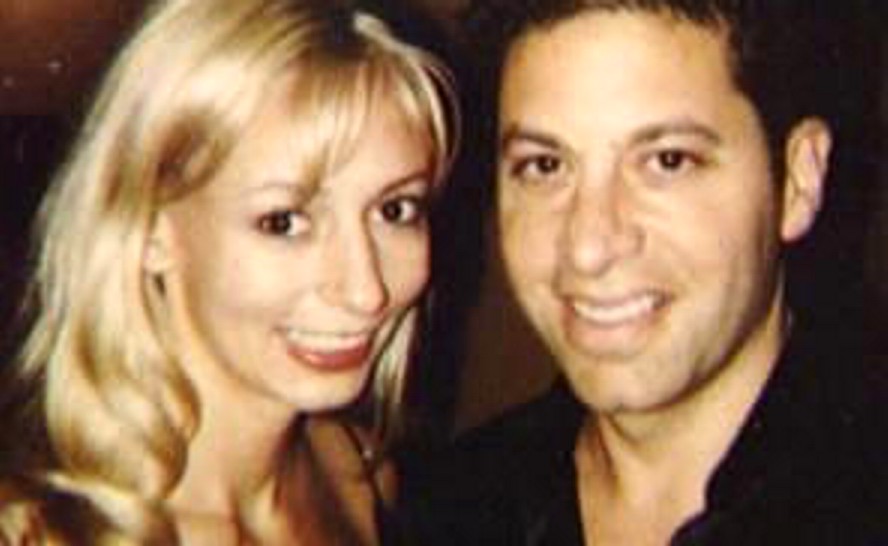
Wednesday, March 14, 2012
Rome Appeal Court Rejects Vanessa Sollecito’s Appeal For Reinstatement In The Carabinieri
Posted by Peter Quennell

[Above and below: Francesco, father of Vanessa and Raffaele, outside their Bisceglie family home late 2011]
In 2008 Vanessa Sollecito and her father Francesco were caught on tape discussing the manipulation of Rome politicians into forcing changes upon the investigation team in Perugia.
Vanessa was fired from the Carabinieri the prestigious Italian national civil-military police force in November 2009 for demonstrating behavior and psychology inappropriate to a law enforcement officer’s job.
Our Italian poster ncountriside has just alerted us to the posting of the official statement that her appeal has been turned down.
The European Court is quoted in that report as confirming that national members have the right to fire official staff for psychological and behavioral cause.
The Carabinieri carried out a very thorough investigation which included the secret bugging of her mobile phone and her father’s phone. Jools translated one key conversation here. Her father suspects they are being bugged by the police but she blithely talks on, digging them in deeper.
This ruling was probably posted when Vanessa Sollecito was already in the air bound for Seattle (see the post below) but she would have known it was coming. This does not bode well for the criminal trial she faces along with her close family, possibly starting in Bari at the end of this month. The charges could incur prison terms.
The Sollecito family arc has almost never been reported on in the English language press. In 21 June 2008 Tom Kington of the Guardian did file this brief report.
The investigation into the murder of British student Meredith Kercher in Italy took a dramatic twist yesterday when the family of one of the suspects was accused of attempting to interfere with the inquiry.
Police tapping the phones of the father of Italian student Raffaele Sollecito overheard discussions that appeared to suggest plans being made to get senior politicians to use their influence and get detectives whom the Sollecitos considered hostile taken off the case. The phone tap information is in files handed over to lawyers as magistrate Giuliano Mignini officially completed the investigation into the strangling and stabbing of Kercher, from Surrey, who was found on 2 November semi-naked in a pool of blood in her bedroom in Perugia.
‘We’ve got to flay the Perugia flying squad,’ a family member was overheard saying, according to the Italian newspaper Corriere della Sera. ‘If we can get rid of the head of homicide and that other one, we’ll be OK.’
Relatives of Sollecito, including his sister, a policewoman, were also overheard discussing politicians who could help their case. Giulia Buongiorno, a lawyer and MP in Silvio Berlusconi’s ruling coalition, has now been retained to represent Sollecito. ‘She can help out on this case at a political level,’ Sollecito’s father was overheard saying.
Sollecito’s father, Franco, a well-to-do doctor from Bari in southern Italy, has campaigned to prove his son’s innocence, even to the point of allegedly leaking to a TV station a video obtained from the crime scene showing Kercher’s corpse, as well as highlighting perceived errors by the investigators, including the delayed recovery of parts of Kercher’s bra strap which were found to carry Sollecito’s DNA.
Police are holding in custody Sollecito, 24; his former girlfriend and Kercher’s flatmate, American student Amanda Knox, 20; and a third suspect, Rudy Guede, 21. All three deny involvement in the vicious killing.
As you can see here, Italian reporting like that translated by Jools usually includes a lot more damning detail.
Wednesday, January 25, 2012
The Curt Knox And Edda Mellas Diffamazione Trial Will Resume In Perugia 30 March.
Posted by Jools
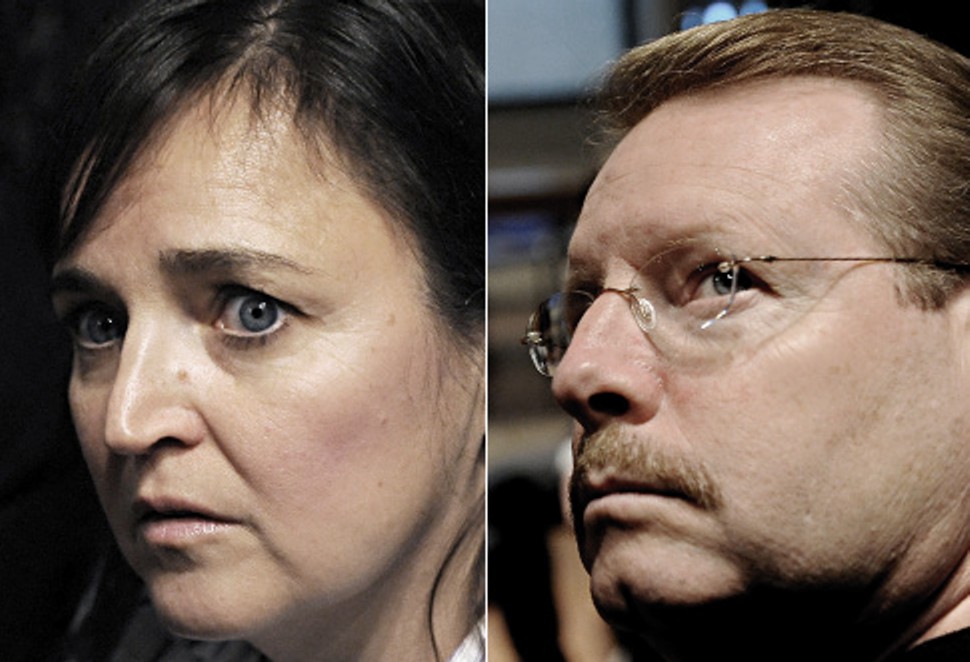
First, here is an explanation of diffamazione.
The charge of calunnia (art. 368) has been commonly translated as “slander” in the English/US media. This translation is incorrect, however, as calunnia is a crime with no direct equivalent in the respective legal systems.
The equivalent of “criminal slander” is diffamazione, which is an attack on someone”Ÿs reputation. Calunnia is the crime of making false criminal accusations against someone whom the accuser knows to be innocent, or to simulate/fabricate false evidence, independently of the credibility/admissibility of the accusation or evidence.
The charges of calunnia and diffamazione are subject to very different jurisprudence. Diffamazione is public and explicit, and is a more minor offence, usually resulting in a fine and only prosecuted if the victim files a complaint, while calunnia can be secret or known only to the authorities. It may consist only of the simulation of clues, and is automatically prosecuted by the judiciary.
The crimes of calunnia and diffamazione are located in different sections of the criminal code: while diffamazione is in the chapter entitled “crimes against honour” in the section of the Code protecting personal liberties, calunnia is discussed in the chapter entitled “crimes against the administration of justice”, in a section that protects public powers.
The suit against Curt Knox and Edda Mellas will commence in earnest on 30 March.
That is two days after the scheduled start of the Sollecito family trial in Bari for alleged subversion of justice, and about six weeks after the prosecution lodges its grounds for appeal with the Supreme Court against the appeal verdict on Amanda Knox and Raffaele Sollecito.
The defamation charges were lodged not by the Perugia prosecutors’ office but by those who considered themselves to have been defamed. Under their rules they are required to do that to safeguard the system.
Amanda Knox is quoted as saying how much she likes Italy and how she would like to be at that trial.
Amanda Knox “loves Italy and likes Perugia”.
She wants to return as a tourist but, if necessary, she’ll do so to testify in the trial against her parents”. To say as much was one of the defenders of the American [female], lawyer Carlo Dalla Vedova. Words came in the space of the proceedings for defamation against the parents of the student from Seattle, which is taking place in Perugia.
The name of Amanda Knox was included in the list of trial witnesses that the defence for Kurt Knox and Edda Mellas, lawyers Dalla Vedova and Luciano Ghirga intend to call to testify in court. “Both are accused of libel through the press in an interview which appeared in 2009 on the website of The Sunday Times” in which they spoke of alleged abuses on her daughter at the police headquarters during the questioning for the investigation into the murder of Meredith Kercher. For which crime Knox was provisionally acquitted on appeal.
In the meantime today the single judge Giuseppe Noviello has rejected an instance by the defence in relation to the territorial incompetence of the Perugian judiciary in dealing with the court proceedings.
“Amanda - said Dalla Vedova - is very interested” in the trial hearings against her parents and to which she is accused of calunnia, also against the flying squad police agents”. With her lawyers she maintains a correspondence by e-mail and every now and then they speak on the phone. “We have not seen her again ““ explains Dalla Vedova - since she was acquitted and went back to the United States. At Christmas though we exchanged greetings and yesterday she sent me an email asking for information on today’s hearing. Tonight I will tell her how it went”.
For the record the hearing in question was then postponed to March 30. On that date the witness for the prosecution will be heard. Then will be the turn for defence witnesses.
Friday, January 13, 2012
Umbria’s Chief Prosecutor Will Proceed Against Knox And Sollecito And Also Aviello
Posted by Peter Quennell
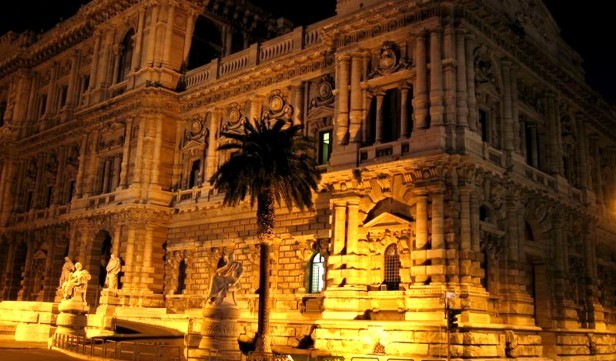
Above: Cassation. Image replaced till we are sure we have one of Dr Galati. See comment in thread below.]
Dr Giovanni Galati is the region of Umbria’s chief prosecutor. He was appointed by the Minister of Justice last year. Previously he was a high-profile and very successful Deputy Prosecutor General at the Supreme Court of Cassation in Rome.
The chief-prosecutor post in Umbria is a sign of great official confidence in Dr Galati. His office in Perugia is one of the best staffed and most formidable of that of any of Italy’s 20 regions. The principle reason for this is that the Perugia office serves as a national surrogate for Rome prosecutors where national political cases are concerned.
His office has been investigating corruption in construction related to the Winter Olympics in 2006 and the severe earthquake in 2010. Parliamentarians in the party of former Prime Minister Berlusconi (which is also the party of Sollecito defense counsel Gulia Bongiorno and Amanda Knox acolyte Rocco Girlanda) are among those now being investigated. Several or some MPs could end up in prison and the parliamentary party severely damaged..
Mr Berluconi’s party is no longer the lead party in the governing coalition in parliament, but it was the lead during the whole of the first-level Knox and Sollecito appeal in Perugia up to the surprise verdict from Judge Hellman. Berlusconi, Bongiorno and Girlanda seem to have all had good reasons to humiliate Giovanni Gelati and his team.
Now Dr Galati gets to fight back.
Reporting items of breaking news on Meredith’s case on her excellent Twitter feed ( @andreavogt ) the Italy-based reporter Andrea Vogt has already reported that Dr Galati is preparing to proceed with a forceful Cassation appeal of the appeal verdict.
Andrea Vogt also reports that the defense super-witness and Mafia super-snitch Luciano Aviello will face a slander hearing in Perugia on 24 May. This may be a smart tit-for-tat move by Dr Galati as Judge Hellman did seem to have bent over backward in his report to ridicule all the prosecution witnesses - most of whom he never even set eyes on.
It may also be a smart taunt directed at Giulia Bongiorno. On the witness stand during the appeal, Mr Aviello claimed that Ms Bongiorno had channeled suggestions to his prison of bribes from the Sollecito family for false testimony. She angrily said she would sue him - but so far she hasn’t launched a suit.
Dr Galati is said to respect Mr Mignini, and to consider that his sliming and the sliming of the police investigators by the Knox forces has been way, way, way over the top.
During the appeal Dr Galati appeared twice in the courtroom to show solidarity with his prosecution colleagues. He addressed the court at the start of October on what he considered severe shortcomings in the DNA report written by Stefano Conti, Carla Vecchiotti and the peripatetic grandstander Greg Hampikian.
Our main poster Tiziano translated this from La Nazione.
The new Prosecutor General of Perugia, Giovanni Galati, spoke briefly in Court in support of his colleagues. He wished to “show his complete support of all the matters raised by his colleagues, in particular as far as the expert report is concerned.”
Seated next to the deputy Prosecutor General, Giancarlo Costagliola, Galati spoke before the Court affirming that it had seemed “his duty” to inform himself on the proceedings in court. “I hope that the Court’s decision will be the fruit of a dignified confrontation of the parties.”
Referring to the expert report of the consultants named by the Court ... he spoke of “evident gaps” and “evaluations [which had been] not requested.”
Last month there was an official function involving Dr Galati and the mayor of Perugia and the chief judge of the Umbria appeal court to initiate Italy’s first online system to allow every interested party to track the progress of court cases and appeals and to obtain all the public documents.
It was not said at the time that one reason for such an open information system is to counter the massive misinformation put out by the Knox and Sollecito forces - but smart people in Italy are not slow to connect up the dots.
Dr Galati’s grounds for the appeal to the Supreme Court (where until recently as mentioned above he was a trusted main player) will be published by February 18th. He does know that court.
Tuesday, November 22, 2011
Mignini’s And Giuttari’s Florence Convictions Are Annulled: No Evidence, And No Jurisdiction
Posted by Peter Quennell

The ANSA news service is reporting that Giuliano Mignini’s and Michele Giuttari’s 2010 convictions have been annulled.
The Florence appeal court ruled scathingly that no evidence exists and also that the Florence trial court did not have jurisdiction. The case might be looked at again by the prosecutors in Turin or Genoa, which Mignini and Giuttari favor to get the spurious case against them more than just annulled. They’d like its root causes brought out. .
Mignini had caught the exact-same Florence prosecutor on tape, with a judge’s consent, bewailing the fact that the Monster of Florence cabal was tying his hands. That trial was simple a panicky attempt to get himself out from under which will hurt his career and the trail judge’s too.
It wasn’t Mignini who invented the Florence cabal (or satanic sect) notion, and he is suspicious of people (like Preston and Spezi) who work so hard to deny it. Many of the Italian Monster of Florence books also argue 180 degrees away from Preston. Hmmm. What hold does the Monster of Florence sect have over Preston? Is he a secret satanist?! The world really wants to know…
Mignin’s quoted remarks outside the appeal court make it sound like he would like to resume the investigation of why Dr Narducci died suspiciously in Lake Trasimeno. That had to be halted because the Florence prosecutor seized all the papers on the case.
We have posted several times as much on Mignini as most of the UK and US media combined, and we translated a long email from him, and two long and very revealing interviews.
Kermit’s contrast of Preston’s satanic obsessions with Mignini’s really very mundane interests are an absolute must-view.
Thursday, April 07, 2011
Sollecito Family Trial: On The Component About Their Alleged Attempt At Political Interference
Posted by Jools
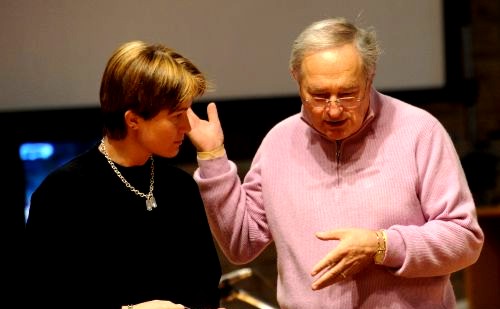
Almost nothing is showing up in the English language media on the court case Raffaele Solecito’s family are facing for allegedly trying to throw the murder investigation.
In the Italian media (as so often in this case) the reporting on this is franker, fuller, and on the whole way more honest. I previously posted articles that focussed mainly on the Telenorba TV video component of the trial.
This now is a translation of a June 2008 writeup of official wiretaps on a police association website of the political-influence component of the trial. The police association would be interested because it was some of their members allegedly being impugned.
Perugia Flying Squad: other interceptions published.
The role of Carabinieri lieutenant, Vanessa Sollecito, becomes stronger from the latest interceptions published by the daily newspaper LIBERO”¦
THE TELEPHONE CALLS OF THE SOLLECITOS’ TO POLITICIANS FOR RAF
The relatives are accused of manipulating the investigation. The sister a lieutenant: “I break a finger and I move to the civilian personnel this is how I’ll get him out”
Murder in Perugia. This is the sister of Raffale Sollecito, the student from Giovinazzo charged with the murder of the young English girl Meredith Kercher, who in a telephone call to her father Francesco tells him that she is prepared to break a finger just to transition into a civilian role in the carabinieri and succeed like this to pursue an “illicit” scheme to get her little brother out of prison and help him to get out of this sh**”¦ country.
Vanessa Sollecito is 31 years old and she is a lieutenant of the Carabinieri armed forces in the Lazio Region. She too, like her father and the rest of the relatives (uncle/aunt, a brother in law, cousins, dad’s second wife), try to gain favors from well known “excellent” people in order to exonerate Raffy and to remove the “real culprits”. These (“real culprits”) would be the police officers that have placed him under investigation and the magistrates who don’t want to know about freeing him.
The Sollecito “clan” (this is how who’s investigating the murder of Via Della Pergola defines Raffaele’s family) is written in the logbook register on the occasion of a second line of police investigation on the murder of November 2 last. The alleged offences are: defamation, invasion of privacy, and publication of arbitrary acts of a criminal case.
The time is 18:20 hours March 3 last [2008] when Vanessa phones her father (a well-known cardiologist [sic] in Puglia) and announces: “I’ve met a man, he is from the penitentiary police who works at the Ministry of Justice. He says that a union leader has explained to him that there is one way for transitioning into the carabinieri civilian staff role, although it is not very legal. And that is for me to break a finger, if things were to go down badly for Raffy, in order to lose the (fit to serve) eligibility” and move to the authority in control of civil service roles.
Francesco Sollecito gets very angry. Not about his daughter breaking a finger, but because he knows that his phone is being intercepted, and screaming he says: “You mustn’t speak on this phone, it is intercepted.” And Vanessa says: “Yours might be intercepted, but not mine!”
Two weeks later, it’s the morning of March 17 - at 10:59, Vanessa tries to phone the “˜Idv’ party - Senator Domenico Formisano - in order to go to meet him. And conveys to her father “He is our friend. He asked me a favor for a young man who must stay in Rome. He’ll be in his office Wednesday at 12:30, I hope to please him so afterwards I make use of the favor owed and will help Raffaele. He is the number two to Di Pietro.”
It’s [a date in] May at 10:23 and aunt Sara Achille (wife of Francesco Sollecito’s brother, Giuseppe) says: “Listen Francesco, Senator Domenico Nania told me to call him to arrange for a meeting in Rome. You know, it’s always better to have a nice… And Sara wanted to involve in the affair even the honorable Renato Schifani.”
Three days before, at four in the afternoon, Vanessa also spoke to her father in a “sarcastic” tone: “That lot are still going to take the foot prints”¦ Colonel De Fulvio, who is the one from RiS, says that they are still at this point”¦ and he’s offered himself to meet up with lawyer Bongiorno in terms of friendship, to see the scientific police material”¦”
[Her father Francesco] Sollecito interrupts her: “About these things you must not speak on this telephone, THIS ONE IS BEING MONITORED! Call me later.”
Uncle Giuseppe Sollecito, on July 30, utters offensive phrases toward the magistrates in Perugia because they haven’t gone in-depth into investigating the trail of the junkie found covered in blood near the victim’s house the day of the murder… “and this is just on purpose to keep Raffaele in prison”. His brother Francesco responds: “I’ll skin them alive those… and they’ll hear from me as well.”
Raffaele’s stepmother Mara Papagni, puts her complete trust in lawyer Giulia Bongiorno: That one “Ms Thirtyballs” will fix everyone”¦ She knows how to behave on certain occasions.
The strategy of Sollecito’s relatives appears to be clear in other wiretappings: they want to put pressure on the judges of the Supreme Court of Cassation so that they’ll agree to accept the appeal presented by the defenders of the young man, they prefer that some investigators whom they regard as inconvenient be removed from the investigation.
In their targets above all are Commissioner Monica Napoleoni, head of the [Perugia] Homicide Section, and Giacinto Profazio, head of the Flying Squad. In their phone calls, the Sollecitos call them bastards, pigs, sons of whores. And they all agree: “We must find someone to intervene at any rate. As written in the logbooks: Its necessary to stop police from doing other vileness.”
The “clan” accuses them of falsifying evidence to frame Raffy. And for this reason they contact journalists and television networks to supply documents and images for broadcasting (such as those depicting the tortured body of poor Mez after the murder and aired by a local television in Puglia).
They wanted to demonstrate that the scientific police played dirty to frame Raffaele. Now the Sollecitos’ and their respective wives are under investigation.
Monday, March 28, 2011
The Sollecito Family Criminal Trial And Civil Trial For Leaking Evidence Will Both Start On 29 April
Posted by Peter Quennell
The Sollecito family face charges for releasing an evidence video to the Bari TV station Telenorba showing Meredith’s body unclothed.
Also for attempting to influence some politicians to get some cops investigating the case moved on. Several Telenorba TV Bari staff-members will also also face charges. The trial was postponed five weeks ago as the judge was still on another case.
It is now reported in Italy by the news service Adnkronos that at today’s brief hearing a Kercher family civil suit against the Sollecitos for this disrespecting of Meredith will run in parallel.
The Sollecito defense team want to dispute the Perugia court’s jursidiction as the alleged crimes took place in Bari and Rome. That seems unlikely to fly as the evidence leaked was taken from Perugia.
The next court date for the Sollecito family will be Friday 29 April.


